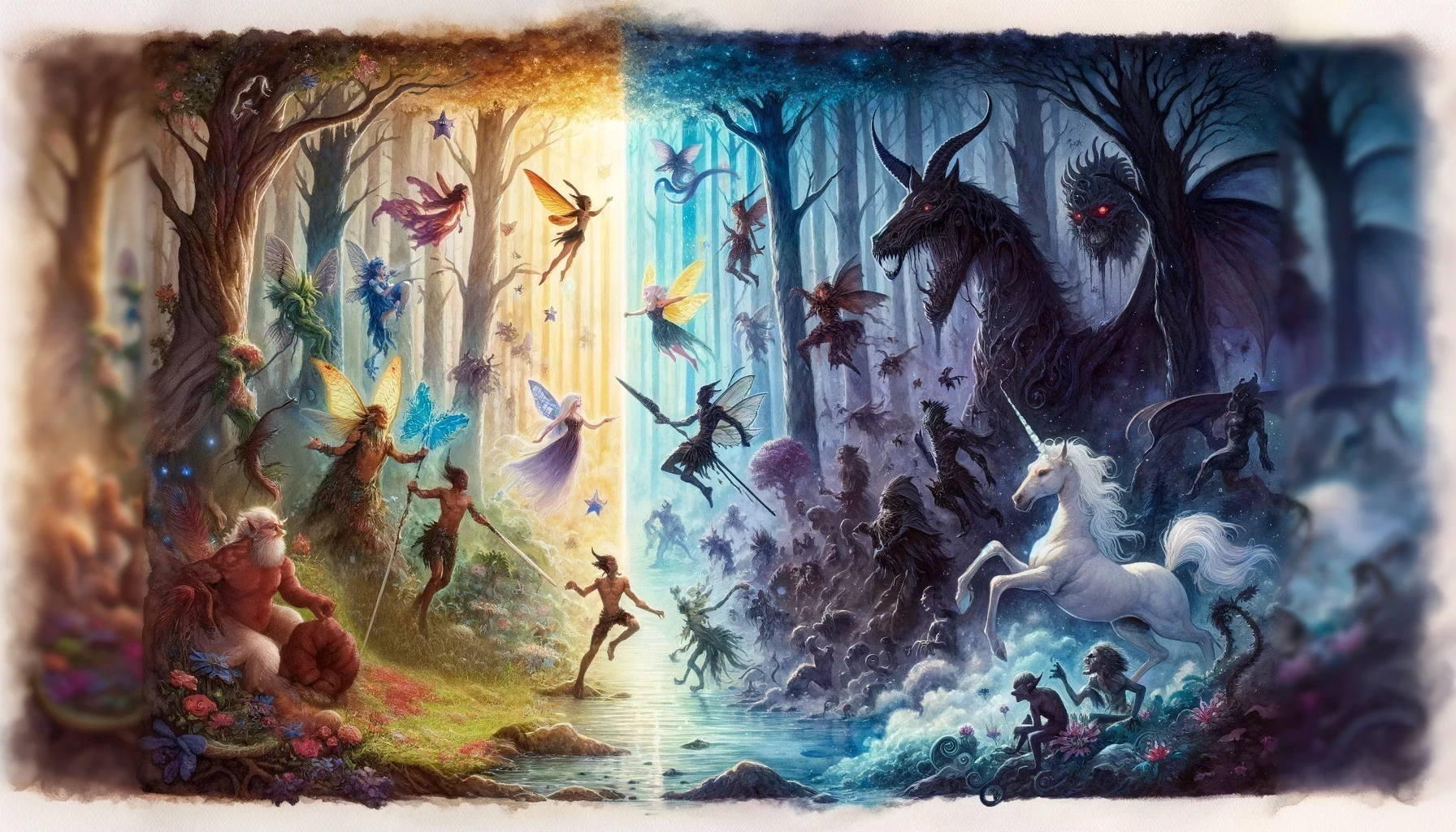top of page

The Clockwork Conspiracy
A busy steampunk cityscape scene



The Clockwork Conspiracy
A busy steampunk cityscape scene
1/4
D&D Buff
D&D: Buff
Buff: A term used in Dungeons & Dragons to refer to a positive effect or enhancement that improves a character's abilities or stats, often granted by spells, magic items, or class features.
-
Buff: This term refers to any effect that enhances or improves a character's abilities, stats, or performance in the game. Buffs can come from a variety of sources such as spells, abilities, magic items, or even actions taken by other characters.
-
Debuff: The opposite of a buff, a debuff is an effect that negatively impacts a character's abilities or stats.
-
Spell: A magical effect conjured by a character. Some spells provide buffs, enhancing a character or their allies' abilities, such as the spell "Bless."
-
Ability Score: A numerical representation of a character's basic attributes: Strength, Dexterity, Constitution, Intelligence, Wisdom, and Charisma. Buffs can temporarily increase these scores.
-
Class Feature: Unique abilities and powers that a character gains from their chosen class. Some of these features can provide buffs, like a Bard's "Bardic Inspiration."
-
Magic Items: Items imbued with magical properties. Some magic items, such as a "Potion of Giant Strength," can provide buffs.
Related Topics
-
Saving Throw: A roll made to resist or avoid a spell, trap, poison, disease, or similar threat. Some buffs can improve saving throws.
-
Concentration: A mechanic related to casting and maintaining certain spells. Many buff spells require concentration, meaning the caster must focus on the spell to keep it active.
Relevant Rules and Mechanics
-
Spellcasting: The process of using magic to cast spells. Understanding how spells work, including those that provide buffs, is an important part of the game.
-
Duration: Many buffs last for a specific duration, often measured in rounds or minutes. Some last until the character rests, while others have a permanent effect.
Understanding buffs and how they can be utilized effectively is an important aspect of strategic play in D&D. It allows you to optimize your character's abilities and provide crucial support to your party in a variety of situations.
Balancing the Game with Buffs: A Guide for Dungeons & Dragons
Buffs, the positive effects that improve characters' abilities in Dungeons & Dragons, are powerful tools that can swing the tide of battle and add depth to the game's mechanics. However, maintaining a balanced game while using buffs is critical to ensure a fair and challenging experience for all players.
A balanced game with buffs begins with understanding each buff's impact. Buffs vary in potency, from minor enhancements like "Bless" which adds a d4 roll to attack rolls and saving throws, to powerful boosts such as "Haste" that can double a character's speed and provide extra actions. Being aware of the weight these buffs carry is vital to ensure they don't overshadow other game mechanics.
Next, consider the duration and the requirements of maintaining buffs. Many buffs, especially spells, require concentration and end prematurely if the caster takes damage and fails a concentration check. This mechanic prevents stacking of multiple powerful buffs and keeps the game challenging.
Strategic use of buffs can lead to dynamic gameplay. Encourage players to coordinate their buffs during combat or use them creatively in role-playing situations. This promotes teamwork and innovative problem-solving.
However, Dungeon Masters should also take note of the buffs their players rely on and adjust their encounters accordingly. This might mean challenging players with enemies that can dispel magic or environments that hinder spellcasting.
On the other side of the coin, Dungeon Masters can use buffs to enhance their NPCs or monsters. This creates unexpected challenges and can level the playing field when players become too powerful.
In conclusion, buffs add a layer of strategy and unpredictability to D&D, but they must be balanced with the rest of the game mechanics.
By understanding, strategically using, and effectively managing buffs, players and Dungeon Masters can create a D&D game that is engaging, fair, and fun for everyone involved.
bottom of page




